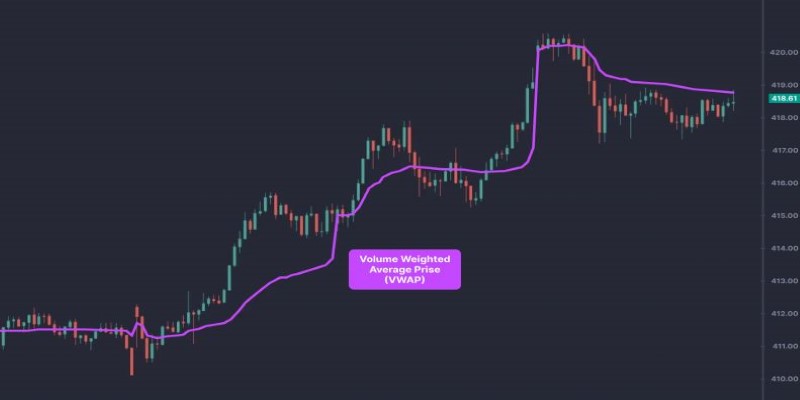Discussing Comprehensively: What Is A Performance Bond?
Dec 27, 2023 By Triston Martin
Performance Bond For Construction
The bidder's financial standing will determine the required performance bond amount. Most often, this is due to the contractor going bankrupt before the job is finished. The bond ensures payment up to the performance bond's face value. Generally, bonds must be secured by 10% of the contract value. The client can use the payment to cover costs associated with resolving issues brought on by the contractor's failure to deliver, such as hiring a new company to complete the work.

What Is A Performance Bond?
What Is a Performance Bond? Performance bonds are commonly demanded governmental projects like road and bridge construction. Private construction projects also frequently employ them. When a contractor fails to complete the agreed-upon tasks, a performance bond can reimburse the owner for any money lost. The scope of the work, the desired outcomes, and the deadline should all be specified in the contract. If the contractor runs into financial difficulties before the project is completed, such as going bankrupt, the performance bond will cover the work's costs. The obligee cannot cash the road construction performance bond because it is a public works project. These would be individuals or organizations like governments who commissioned the work Contract. Indiana Performance Bonds
What's The Point Of Requiring People To Put Up Performance Bonds?
In many cases, companies need to have their employees purchase performance bonds. The construction industry is extremely prevalent, as it frequently offers its services to public administrations. For example, a general contractor may construct a school, while an electrician may improve the illumination of a retirement home. A performance bond can assure that a business will fulfill its contractual obligations in various other sectors, including technology, trucking, and the service industry.
How Are The Performance Bond Prices Calculated?
Bond prices could go anywhere from 1% to 15%, depending on a person's credit score. This will depend on your credit score. The percentage increases in bond cost. A bond with a $10,000 interest rate would cost roughly twice as much as a $20,000 bond with a 5% interest rate.
What Is The Purpose Of A Performance Bond?
Surety bonds are a common form of contract security, and performance bonds ensure that building projects will be finished as promised by the contractor. In cases where the duration or size of a project cannot be estimated with certainty, these bonds may be required in addition to the contractor's license bond.
Protection Of Parties
If a contractor fails to fulfill their end of a contract, the performance bond will compensate the harmed parties. If the contractor goes bankrupt, the entity that issued the performance bond should be compensated for any losses they incur due to the contractor's inability to complete the work.
Two types of bonds—the payment bond and the performance bond—go hand in hand. A payment bond ensures that all parties (suppliers, subcontractors, and workers) will be paid after completing a project. A performance bond ensures the completion of a project. These rewards will encourage workers to complete the project to the client's satisfaction.
Commodity Contracts
Performance bonds can also be used in commodity contracts. As a form of insurance against non-delivery, a seller may offer a bond to the buyer. Protect yourself financially from project failure or delays with the help of a performance bond.
What Are The Benefits Of Performance Bonds?
When a performance bond is called for in a contract, the contractor must post it. They are a standard contractual provision outlined by the obligee for the obligee's benefit. There are no direct advantages to the principal from having a performance bond, but there are three indirect advantages:
The process of successfully acquiring bids requires less effort and time. In most cases, obligees will not permit unbonded contractors to participate in the bidding process for bonded projects. If you cannot fulfill the terms of the contract due to factors such as poor bidding or bankruptcy, the surety will pay for any damages you have incurred.
The owners of the project can have peace of mind knowing that only reputable businesses will submit bids for their work if the owners require potential bidders to issue performance bonds. Now that we have everything in place, we can be certain that the quality of any initiatives already underway will be kept to the best degree possible. To put it another way, this makes things less complicated for everyone involved.

Conclusion
A performance bond protects one against the possibility that the other party to a contract will not fulfill their obligations as outlined in the agreement. It is usual for a financial institution or an insurance company to be the entity that issues a performance bond. Providing the buyer with the assurance that the seller will deliver the good in question typically necessitates using a performance bond.

Accelerating Digital Finance: How Tech Providers Assist Financial
Nov 06, 2024
Learn how financial institutions partner with tech providers to make RTP and FedNow onboarding faster and more seamless, helping them speed up payments and tap digital finance opportunities.

Exploring the Different Types of Income Tax and Their Calculation Methods
Oct 05, 2024
A comprehensive guide on different types of income tax and their calculation methods, helping individuals and businesses navigate their financial obligations effectively.

How to Trade Binary Options: A Step-by-Step Guide
Aug 27, 2024
What binary options are, how they work, and a practical example in this easy-to-understand guide. Learn the basics of binary options trading and key details to get started

What Are The Benefits And Drawbacks Of Angel Investors?
Feb 21, 2024
A business angel is a wealthy individual who makes a personal investment in a small company in return for a minority ownership share (often between 10% as well as 25%). Individuals most likely to become angel investors are those who have already established themselves as company owners or have substantial professional expertise. There is more to angel investing than simply money. An angel investor's time, expertise, network, and business savvy are all valuable assets to any company that accepts investment from one.

A Step-by-Step Guide to Filing Your W-4 Form in 2024
Oct 14, 2024
This article offers detailed guidance on accurately completing your W-4 form to manage tax withholdings and avoid unexpected tax liabilities.

All You Need to Know About Annual Percentage Rate
May 16, 2024
Understand the Annual Percentage Rate (APR) as it is crucial to manage finances. Learn its significance and implications in this comprehensive guide.

VWAP: The Essential Indicator for Informed Trading Decisions
Sep 10, 2024
What the VWAP indicator is and how it can enhance your stock trading strategy. Learn about the volume-weighted average price and its role in technical analysis

Michigan First Home Down Payment Assistance
Feb 13, 2024
The Michigan First Home Down Payment Assistance Program is a state-run initiative designed to financially empower first-time homebuyers. By providing up to $7,500 in down payment assistance, the program enhances homeownership accessibility and affordability.

What Exactly Is Bond Valuation?
Nov 03, 2023
A bond is a type of financial instrument corporations, and governments use to raise money for certain purposes. By purchasing such debt securities, investors are essentially making loans to the debtor. The bond's structure determines whether the borrower pays a fixed or variable interest rate yearly.

Steps to Becoming a Successful Forex Trader: Proven Strategies
Sep 18, 2024
Take advantage of market overlaps and monetary policy, and apply technical analysis indicators to become a successful market trader and manage risk.

Evaluate Stock Research Websites: A Comprehensive 2024 Guide
Sep 08, 2024
To choose the best stock research analysis website in 2024. Learn key factors to consider, including data accuracy, tools, and user experience

What Is Current Price? All You Need To Know
Feb 01, 2024
The current price of a stock, currency, commodity, or precious metal traded on an exchange is the best way to figure out how much it is worth. The current price of a stock, commodity, currency, or precious metal is the most recent price at which it was sold